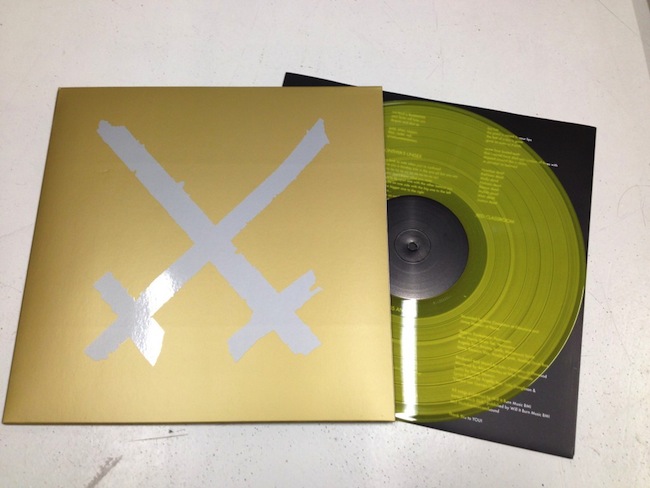Music Review: “Angel Guts : Red Classroom” — Indispensably Edgy Art Pop
I cannot express my love for “Angel Guts : Red Classroom” strongly enough. At the very least, it’s necessary listening for anyone with an interest in “no wave” and avant-garde music.
Angel Guts : Red Classroom, the latest album from notorious art pop outfit Xiu Xiu, is inspired by Japanese erotica, New York’s “no wave” art movement of the ’70s and ’80s, and frontman Jamie Stewart’s move to a crime-ridden Los Angeles neighborhood. A number of critics have been harping on these unsavory elements in an attempt to undermine the record’s many aesthetic merits. This line of attack is not surprising, given that this is an LP that wears its influences on its sleeve, making for a decidedly challenging listening experience. Understandably, critics are resorting to the good old “I didn’t like this album, but I did appreciate it” cop-out.
Since Angel Guts : Red Classroom deals with “racialized sex, double suicides, double penetration, criminality, [and] fear of physical harm,” the album is not one that you should necessarily admit to ‘enjoying.’ But it’s to Xiu Xiu’s credit that despite working with a minimalist instrumental palette (only analog drum machines, analog synths, and a drum kit) and taking cues from such “no wave” and avant-garde heroes as Suicide, Einstürzende Neubauten, and Scott Walker, Angel Guts : Red Classroom is the band’s most consistent, immediate, and thus enjoyable album to date.
Right out of the gate, Xiu Xiu displays a bit more ambition than usual by bookending the record with moody instrumental passages. “Angel Guts:” kicks off the disc with the sounds of whooshing wind and a quasi-exotic (but apparently synthesized) stringed instrument. After a protracted fade-out, “Archie’s Fades” begins with a droning synth (resembling a cello), discreet acoustic percussion, and Stewart’s throaty croon, “Your face is down alone/On your desk/At the end of the city/You were squashed into/There is no one you love.” Noisy electronic flourishes blare between verses; the percussion becomes more clanging and conspicuous as the track comes to a close. It’s the most plodding song on the LP, but it works exceptionally well at establishing the project’s depressing tone and occasionally earsplitting aesthetic. Also, it features Stewart’s most dynamic vocal performance yet – a breath of fresh air after the consistently breathy LP Nina.
Next are the singles, “Stupid in the Dark” and “Lawrence Liquors,” two of the album’s most upbeat cuts. The former starts with tense, minimal synth work and beats that are reminiscent of Suicide. But then the chorus kicks in and there’s a rush of harmony when Stewart’s trademark vocals howl into the night, his inflection giving words like “passion” new meaning. The latter tune proffers a rattling drum machine sequence, buzzing synth intrusions, and a vocal from Stewart in which he comes on as manic as he does on his 2004 masterwork Fabulous Muscles. His refrain sounds more like the yelp of a dog than the voice of a human being, but somehow the track still manages to be catchy.
However, the catchiest song on the disc has to be “Black Dick.” It has a playful arpeggiated synth sequence, a propulsive drum kit, a particularly eccentric performance from Stewart, and yet more searing eruptions of electronics that make it sound as though this was updated material from 2006’s The Air Force. “New Life Immigration” is a necessary comedown, its understated instrumental and Stewart’s tender voice coming across as beautiful and serene, although the song can’t be seen as a positive statement — it is about a double suicide.
Naturally, the prettiest song on the album is succeeded by the ugliest. “EL Naco” is demented, but despite that there’s a strong case to be made for it being among the most impressive piece here. It features Stewart yelling abstract poetry over an initially minimalist beat of foreboding bells, but the track grows yet more menacing as it piles on layer upon layer of dinging electronics, synthesized strings, and crashing gongs. There is undoubtedly a point when you will be overwhelmed and crushed. And that is a good thing: it’s most likely the most evocative and deftly constructed piece of avant-garde or electronic music that will be released this year.
“EL Naco” will probably leave you needing a relief track, but Xiu Xiu isn’t ready to give you that just yet. “Adult Friends” offers an upbeat drum machine sequence, but it also contains a claustrophobic vocal from Stewart as well as the most explosive chorus on the LP, with what sounds (at points) like knives sharpening and pigs squealing. “The Silver Platter” is driven by pummeling arpeggiated synth, ringing electronics that conjure up a feeling akin to tinnitus, and zany voice manipulations. Jamie bellows most of the lyrics. The choice line from this song: “It tastes like a puppy!” Do not listen to this track when your dog is in the room.
But the relief you’ve been desiring since “EL Naco” at last comes in the form of “Bitter Melon.” Here, we get synth and vocals that could actually be described as “soothing,” and the instrumental might even be described as tropical. “A Knife in the Sun” proves to be another highlight; it is the most rawly affecting piece on the album. The song is dedicated to “cops, transsexuals, taxi drivers, homosexuals, drug dealers, and pickpockets.” Its poky instrumental groove is constantly threatened via astringent vocal intrusions. The explosion finally occurs when Stewart shrieks “GREEN!” at the end of the second chorus, bringing the song to a close with two earfuls of garbled shouting and piercing electronics.
Then we have “Cynthya’s Unisex,” a multi-phased piece of “no wave” throwback, and probably the album’s most impressive track. Again, the tune wears its Suicide influence on its sleeve, but Xiu Xiu’s unequalled prowess in building on a beat transcends the influence. There is no reason that a song about double penetration should be as entertaining as this, but you will come away from “Cynthya’s Unisex” remembering all of Stewart’s lines after just one or two listens.
The LP appears to close on a victorious note with “Botanica de Los Angeles.” Unlike “New Life Immigration,” the track’s upbeat nature is not due solely to its warm, swelling, and ultimately booming instrumental. It is without a doubt the most triumphant composition Xiu Xiu has turned out because Stewart’s confident delivery of the (bleak) lyrics leaves you with the sense that there is hope in this world. Don’t let depressing thoughts break you – take them in stride. We’re then given the names of many of the people mentioned in earlier Xiu Xiu music, each followed by “: dead,” lending the album a sense of finality. But then the whooshing wind of “Angel Guts:” returns on “:Red Classroom,” which, unlike the pleasant, sitar-esque sound on the former song, proffers intermittent bursts of horrendous buzzing synth. It’s like having a motorcycle and a chainsaw revving right up against your ears – I can safely say it’s the most disquieting piece of music I’ve ever heard.
That being said, I cannot express my love for Angel Guts : Red Classroom strongly enough. At the very least, it’s necessary listening for anyone with an interest in “no wave” and avant-garde music. Granted, the album is very “fucked up,” but to characterize its music as one-note would be erroneous. It is impeccably structured, exquisitely arranged, and the way Xiu Xiu explores a variety of disturbing themes is profound yet amazingly likable.
Tagged: Angel Guts : Red Classroom, Jamie Stewart, art pop


